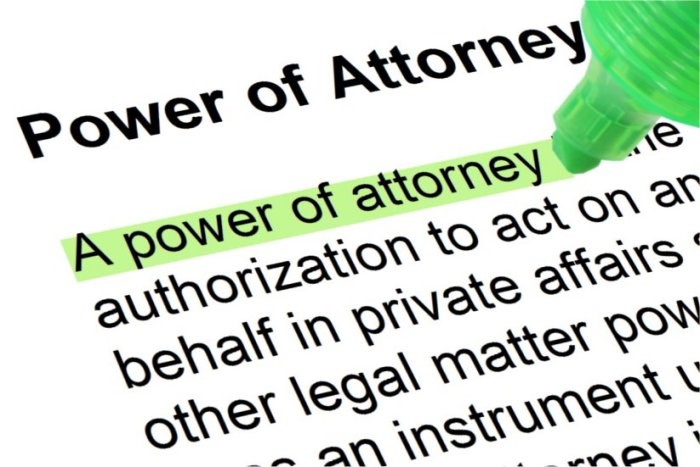
We recognise that the law can be confusing if you’re not familiar with it. If you’re elderly or become sick, legalities are the last thing you want to be battling to understand. So, we have written our guide to explain the rights you and your loved ones have regarding inheritance and POwer of Attorney issues.
Understanding Power of Attorney
Before we go any further, it is important that we point out that there is more than one kind of Power of Attorney and what each of these means.
A Power of Attorney appointment ensures someone acts on your behalf if one day you’re no longer able to look after yourself. This could involve making decisions regarding finances, living arrangements or healthcare options.
There are three different types of Power of Attorney:
1. Ordinary Power of Attorney – Someone will look after your financial affairs for a period of time because of physical illness, injury or you are abroad for an extended period.
2. Lasting Power of Attorney – Similar to the above, but it can also cover personal welfare and the appointment must be registered. It’s usually associated with people at risk of losing mental capacity.
3. Enduring Power of Attorney – A Power of Attorney agreement made prior to 1st October 2007 that is no longer available, yet still valid.
There are then two different kinds of Lasting Power of Attorney:
1. Property and finance affairs LPA
2. Personal welfare LPA

For more information on Power of Attorney and who could become your attorney, read our blog post: Solicitors for the Elderly: A Guide to Lasting Power of Attorney
Issue #1: Claiming Inheritance When There’s a Power of Attorney
This is a common situation where a person, who has Power of Attorney, finds out they are entitled to an inheritance. This can be a confusing time, but it is important to know that the Power of Attorney not only has the legal power to handle day-to-day financial issues, but one-off incidents, such as an inheritance claim.
As a result, the Power of Attorney should handle all inheritance work on behalf of beneficiary with their best interests at heart.
A Power of Attorney can also be granted the legal power to:
• Buy, manage or sell property
• Pay taxes
• Pay bills
• Conduct banking transactions
• Invest in stocks, bonds or funds
• Make legal claims or conduct litigation
• Manage a pension fund
• Make cash or asset gifts
• Collect benefits
• Operate a small business
Issue #2: Gifting Cash or Assets as a Power of Attorney
As stated above, a Power of Attorney is well within their given rights to make gifts on behalf of the donor. However, there are rules and restrictions governing this.

A gift can only be made:
• To a person who would normally have received a gift
• On an occasion, such as a birthday or for Christmas
• To charities that would have normally received donations
Please note: An interest-free loan is seen as a present, as the waived interest is technically a gift.
These gifts must be deemed ‘reasonable’ and ‘suitable’, which cannot be defined by anyone other than the donor. As the Office of the Public Guardian explains,
‘The Mental Capacity Act does not define what is a “reasonable” or “unreasonable” gift. Deputies and attorneys are expected to decide how much is reasonable. It is not possible for the Public Guardian to give precise figures or guidance.
The reasonableness of a gift depends very much on P’s [the donor's] particular circumstances which includes consideration of their liquid capital; whether they own a property and what will happen to it; their income and expenditure and whether there is a sizable gap between the two; their care and accommodation costs and whether these are likely to change; their age and life expectancy; their future needs; the terms of their Will and so on.’
Please note: A Power of Attorney is not obliged to make any gifts and is bound by the conditions set out in any Enduring Power of Attorney agreement.
A Power of Attorney is also within their legal right to gift property or assets. However, a consultation with the Court of Protection may be required. It is important to keep a record of all account income and outgoings as the Office of the Public Guardian (OPG) and the Court of Protection can request to check these at any time. And a Power of Attorney can be prosecuted if they believe money has been misused.
Let Howells Expert Solicitors Help You Understand Your Rights
Do you have a specific question relating to inheritance and/or Power of Attorney? Then tweet us @HowellsLegal and we’ll do our best to address it in this blog. Or for more private issues, please contact our friendly solicitors on 0808 178 2773.

(images: Quinn Dubrowski under CC BY-SA 2.0 and The Blue Diamond Gallery under CC BY-SA 3.0)
